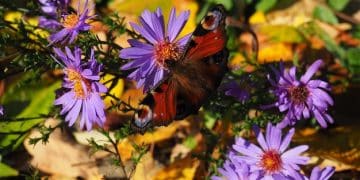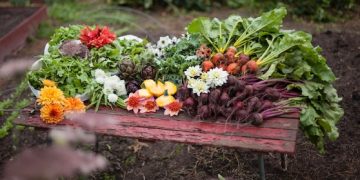Control Garden Pests Naturally: Organic Guide for 2025
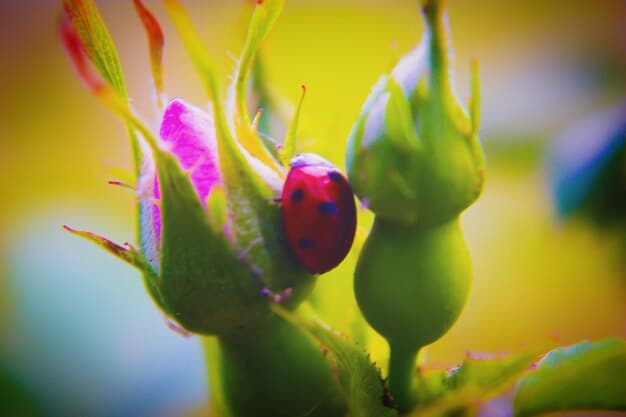
Control garden pests naturally in 2025 with organic methods including companion planting, beneficial insects, neem oil, and proper garden hygiene, ensuring a healthy and thriving garden without harmful chemicals.
Tired of pests ruining your garden? Discover how to control garden pests naturally in 2025 with simple, organic methods that protect your plants and the environment.
Why Choose Natural Pest Control?
Choosing natural pest control methods is increasingly important for maintaining a healthy garden and a sustainable environment. As we look ahead to 2025, the benefits of avoiding synthetic pesticides are clearer than ever.
Opting for natural solutions not only protects beneficial insects and pollinators but also ensures that your produce is free from harmful chemicals. Let’s explore why this approach is gaining popularity and how you can implement it in your garden.
Benefits of Organic Pest Control
Organic pest control offers numerous advantages over traditional chemical methods. Here are a few key benefits:
- Environmental Protection: Reduces the risk of polluting soil and water sources.
- Healthier Produce: Ensures your fruits and vegetables are free from pesticide residues.
- Beneficial Insects: Protects helpful insects like bees, ladybugs, and butterflies.
By embracing organic practices, you contribute to a healthier ecosystem and a safer food supply.
The Growing Demand for Organic Gardening
More and more gardeners are turning to organic methods as they become more aware of the impact of chemicals on the environment and their health. This shift is driven by a desire for sustainable and eco-friendly gardening practices.
The demand for organic produce is also on the rise, encouraging gardeners to adopt natural pest control methods to meet this growing market. This trend is expected to continue into 2025 and beyond.
In conclusion, choosing natural pest control is a smart move for both your garden and the planet. It promotes biodiversity, protects your health, and ensures a sustainable future for gardening.
Understanding Common Garden Pests
Before diving into natural pest control methods, it’s crucial to understand the common culprits that might invade your garden. Identifying pests early allows you to take swift and effective action, minimizing damage to your plants.
Different pests target different plants, so knowing which ones to watch out for in your specific garden environment is essential. Let’s explore some of the most common garden pests and their characteristics.
Identifying Pests: Visual Clues
One of the first steps in managing garden pests is being able to identify them. Look for these visual clues:
- Leaf Damage: Holes, chewed edges, or discoloration on leaves.
- Visible Insects: Small insects crawling on leaves, stems, or flowers.
- Sticky Residue: Honeydew, a sticky substance excreted by some pests, can attract ants and other insects.
Regularly inspecting your plants can help you spot these signs early and take appropriate measures.
Common Garden Pests to Watch Out For
Here are some of the most common garden pests you might encounter:
Aphids: Small, soft-bodied insects that suck sap from plants, causing distorted growth.
Caterpillars: Voracious eaters that can defoliate plants quickly.
Slugs and Snails: Mollusks that chew holes in leaves and stems, especially in damp conditions.
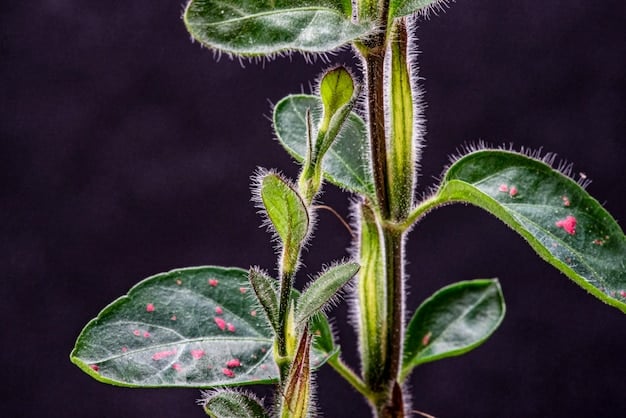
Understanding these common pests and their behavior will help you choose the most effective natural control methods.
In summary, recognizing common garden pests is the first step in implementing an effective organic pest control strategy. Early identification can prevent significant damage and ensure your plants thrive.
Effective Organic Pest Control Methods
With a good understanding of common garden pests, you can now explore effective organic pest control methods. These techniques rely on natural ingredients and sustainable practices to keep your garden healthy.
From homemade solutions to beneficial insects, there are many ways to manage pests without resorting to harmful chemicals. Let’s delve into some of the most popular and effective organic methods.
Homemade Pest Control Sprays
Creating your own pest control sprays is a cost-effective and eco-friendly way to protect your plants. Here are a couple of recipes to try:
Neem Oil Spray: Mix 2 tablespoons of neem oil with 1 gallon of water and a few drops of dish soap. Spray on affected plants every 1-2 weeks.
Garlic Spray: Blend 4 cloves of garlic with 2 cups of water. Strain the mixture and dilute it with 1 gallon of water. Spray on plants to repel pests.
These homemade sprays are gentle on plants but effective at deterring many common garden pests.
Beneficial Insects: Natural Predators
Introducing beneficial insects to your garden can help control pest populations naturally. Here are a few beneficial insects to consider:
- Ladybugs: Voracious predators of aphids and other small insects.
- Lacewings: Their larvae feed on aphids, mites, and other soft-bodied pests.
- Praying Mantises: Generalist predators that eat a wide variety of insects.
These beneficial insects can help maintain a balanced ecosystem in your garden, keeping pest populations in check.
Ultimately, implementing effective organic pest control methods is about working with nature to create a healthy and balanced garden ecosystem. These methods are safe, sustainable, and beneficial for both your plants and the environment.
Companion Planting for Pest Control
Companion planting is a time-tested technique that involves planting specific plants together to benefit each other. Some plants can repel pests, attract beneficial insects, or improve soil quality, creating a healthier environment for your garden.
By strategically pairing plants, you can create a natural defense against pests and reduce the need for other control methods. Let’s explore some effective companion planting strategies for pest control.
Effective Companion Plant Pairings
Here are some popular and effective companion plant pairings:
- Marigolds and Tomatoes: Marigolds repel nematodes and other soil pests that can harm tomato plants.
- Basil and Tomatoes: Basil repels aphids, whiteflies, and other pests that commonly attack tomatoes.
- Carrots and Onions: Onions repel carrot root flies, while carrots repel onion flies.
These pairings create a mutually beneficial relationship that helps protect both plants from pests.
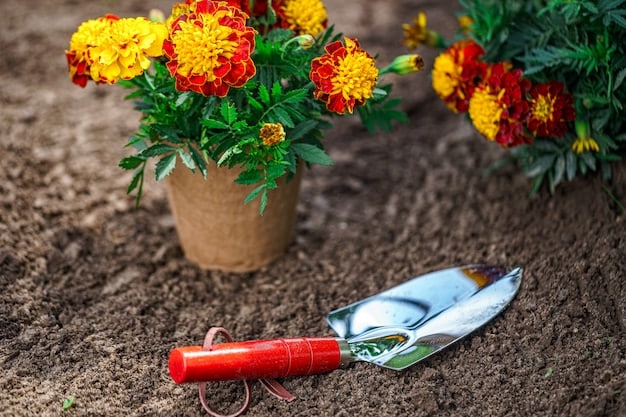
How to Plan Your Companion Planting Strategy
Planning your companion planting strategy involves considering the specific pests and plants in your garden. Here are a few tips to help you get started:
Research: Learn which plants repel specific pests that are common in your area.
Plan Your Layout: Design your garden layout to strategically place companion plants near vulnerable crops.
Monitor: Keep an eye on your plants to ensure that the companion planting strategy is working effectively.
In conclusion, companion planting is a powerful tool for natural pest control. By strategically pairing plants, you can create a healthier and more resilient garden ecosystem.
Maintaining Garden Hygiene for Pest Prevention
Good garden hygiene is essential for preventing pest infestations and maintaining a healthy growing environment. Simple practices like removing debris, pruning plants, and rotating crops can significantly reduce pest problems.
By keeping your garden clean and well-maintained, you create an environment that is less attractive to pests and more favorable for healthy plant growth. Let’s explore some key aspects of garden hygiene for pest prevention.
Key Practices for Garden Hygiene
Here are some essential garden hygiene practices to incorporate into your routine:
Remove Debris: Clear away fallen leaves, dead plants, and other debris that can harbor pests and diseases.
Prune Plants: Regularly prune plants to improve air circulation and sunlight penetration, reducing the risk of fungal diseases and pest infestations.
Rotate Crops: Rotate crops each season to prevent the buildup of soilborne pests and diseases.
The Role of Soil Health in Pest Prevention
Healthy soil is the foundation of a healthy garden. Improving soil health can make your plants more resistant to pests and diseases. Here are a few ways to improve your soil:
- Add Compost: Compost improves soil structure, drainage, and nutrient content.
- Use Cover Crops: Cover crops can suppress weeds, prevent erosion, and improve soil fertility.
- Avoid Overwatering: Overwatering can create conditions that favor fungal diseases and pest infestations.
Maintaining good garden hygiene and promoting healthy soil are essential for preventing pest problems and creating a thriving garden.
In summary, maintaining garden hygiene is a proactive approach to pest management. By keeping your garden clean and healthy, you can create an environment that is less attractive to pests and more conducive to plant growth.
Monitoring and Adapting Your Pest Control Strategy
Effective pest control is not a one-time effort but an ongoing process that requires regular monitoring and adaptation. As conditions change and new pests appear, you need to be prepared to adjust your strategy to maintain a healthy garden.
Regular monitoring allows you to detect pest problems early and take swift action before they escalate. Adapting your strategy based on observations and results ensures that your pest control methods remain effective over time. Let’s explore how to monitor and adapt your pest control strategy.
Regular Garden Inspections
Regularly inspecting your plants is crucial for detecting pest problems early. Look for signs of damage, such as:
- Leaf Damage: Holes, chewed edges, or discoloration.
- Visible Insects: Small insects crawling on leaves, stems, or flowers.
- Sticky Residue: Honeydew, a sticky substance excreted by some pests.
Inspect your plants at least once a week, paying close attention to vulnerable areas like new growth and undersides of leaves.
Adjusting Your Strategy Based on Results
If your pest control methods are not working effectively, you need to be prepared to adjust your strategy. Here are a few things to consider:
- Identify the Pest: Make sure you have correctly identified the pest and are using the appropriate control methods.
- Adjust Application: Ensure that you are applying pest control solutions correctly and at the right intervals.
- Try Different Methods: If one method is not working, try another approach, such as introducing beneficial insects or changing your companion planting strategy.
Monitoring and adapting your pest control strategy is an ongoing process that requires patience and persistence. By staying vigilant and flexible, you can maintain a healthy and pest-free garden.
In conclusion, monitoring and adapting your pest control strategy is essential for long-term success. Regular inspections and a willingness to adjust your approach will help you stay ahead of pest problems and maintain a thriving garden.
| Key Point | Brief Description |
|---|---|
| 🌱 Organic Methods | Use natural solutions to control pests without harmful chemicals. |
| 🐞 Beneficial Insects | Introduce insects like ladybugs to prey on garden pests. |
| 🌼 Companion Planting | Pair plants to repel pests and attract beneficial insects. |
| 🧹 Garden Hygiene | Maintain a clean garden to prevent pest infestations. |
Frequently Asked Questions
▼
Organic pest control protects beneficial insects, avoids harmful chemicals, and maintains a healthy garden ecosystem. It ensures safer produce for your family.
▼
Apply neem oil spray every 1-2 weeks or after heavy rain. Monitor your plants and reapply as needed to control pests effectively.
▼
Signs include leaf damage, visible insects, sticky residue, and distorted plant growth. Regularly inspect your plants to catch infestations early.
▼
Yes, companion planting can effectively deter pests by repelling them or attracting beneficial insects. It’s a natural and sustainable method.
▼
Garden hygiene removes debris and dead plants that harbor pests. Cleanliness reduces breeding grounds and prevents infestations, promoting plant health.
Conclusion
By implementing these natural pest control methods, you can effectively protect your garden from pests in 2025 and beyond. Embrace organic practices and enjoy a healthy, thriving garden without the use of harmful chemicals.
